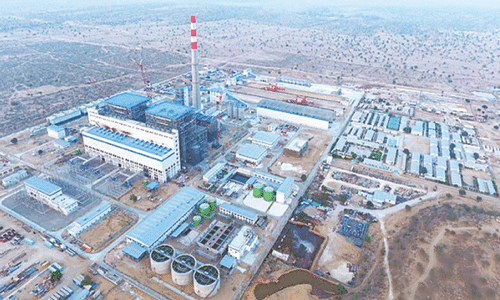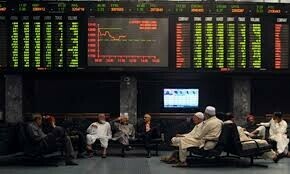 When the so-called Friends of Pakistan Group met in New York on Sept 26 on the sidelines of the United Nations General Assembly session, many of us thought dollars will start flowing quickly to help the country overcome its current balance of payments crisis and prevent its economic slide.
When the so-called Friends of Pakistan Group met in New York on Sept 26 on the sidelines of the United Nations General Assembly session, many of us thought dollars will start flowing quickly to help the country overcome its current balance of payments crisis and prevent its economic slide.
But the euphoria died down in a few hours when the ‘friends’ did not make any firm pledge of aid.
“It was wrong to attach hopes (of immediate relief) with the meeting (of the group); nobody carries cheque books in his hands,” Mr Naveed Qamar, who participated in the meeting as the country’s finance minister, told Dawn.
“The Friends of Pakistan Group, though a permanent body, is not an Aid to Pakistan Consortium. It isn’t an economic body; it isn’t a donors’ forum. It is a much wider forum than that, in which we can discuss all issues where we need international support,” he said.
A statement issued after the meeting said the Friends of Pakistan welcomed focus of the Pakistani leadership on national development as a strategic priority and desire to promote peace and stability in both the country and the region.
“The group would work closely with Pakistan to develop a comprehensive and a well coordinated security and political strategy for bringing about stability (in this country and the region),” the former finance minister said.
“Since no strategic partnership can work without being backed by a solid economy, we also expect our friends to help us in this area as well,” he said.
Mr Qamar’s words echo the statement made by President Asif Zardari soon after the meeting of the group.
“The Friends of Pakistan conference was not a donors’ conference. We wanted to create a strategic partnership as Pakistan is a front-line state in the ongoing war on terror... this war has cast negative impact on our economy,” the president was reported to have said.
He sounded quite optimistic about help from the group when he described the outcome of the conference as “very constructive”. “All of them want to help. They want to make democracy work... and help it deal with the economic challenges the country faces,” the president said.
His optimism was backed by United States Secretary of State Condoleezza Rice, who pledged her country’s support for the steps Pakistan must take for economic reforms.
“I hope that the president (Zardari) and the Pakistani people were assured today that the international community will be by their side as they take difficult decisions and work for a more stable and prosperous Pakistan,” she said.
British Foreign Secretary David Miliband described the meeting as “a very strong signal of political and economic support to the democratically elected government in Pakistan”.
He said every single country that joined the Friends of Pakistan Group “stands shoulder to shoulder with Pakistan... equally important every single one of our countries stands shoulder to shoulder with the democratically elected government and the people of Pakistan in their struggle against terrorism...”
UAE Foreign Minister Shaikh Abdullah bin Zayed said his country fully backed the initiative to “show our commitment to Pakistan”. The Friends of Pakistan Group initiative was launched by London and Washington on the request of Mr Zardari to help Pakistan avert an economic collapse, and the United Arab Emirates government is understood to have lent immense support to the idea. Besides rich G-7 nations, the conference was attended by UAE, China, and Turkey. The European Union and the United Nations had also sent their representatives. Saudi Arabia, who didn’t participate in the New York meeting, is also likely to join the forum at its next meeting.
Mr Qamar said that the Asian Development Bank and the World Bank also wanted to become part of the group when it holds its next meeting.
Though no date has so far been firmed up, the group is scheduled to meet in Abu Dhabi at the end of this month to discuss the strategy to take forward the agenda.
Mr Qamar sought to dispel the reports that the group or some of its members want Islamabad to come up with concrete and specific proposals for economic assistance.
“They haven’t asked for this. But it surely is in our own interest to firm up specific proposals before we go into next meeting,” he said.
In its inaugural meeting, which was primarily attended by the foreign ministers of most participating nations, the group agreed that they “should work in strategic partnership with Pakistan and other relevant partners” in such areas as stability, counterterrorism, development, institution building, economy, etc.
“The Friends of Pakistan is a group that will support Pakistan’s democratic government in its efforts to consolidate democracy, ensure rule of law, bring about political stability and promote social and economic development in the country,” said a finance ministry official who refused to give his name.
“Our friends have assured us of their support to undertake crucial economic reforms. They have agreed to provide our exporters greater access to their markets as well as encourage their investors to invest in our economy,” the official said.
But officials are not sure if the group will be able to help Islamabad in the short-term over next few weeks and months to overcome its cash flow problems as its current account deficit grows to $2.57 billion in the first two months of the current financial year from $1.57 billion last year and foreign currency reserves falls to $8.3 billion from $16.4 billion a year ago as almost all sources of foreign capital inflows have either dried up or slowed down.
The economic analysts suggest that Islamabad may find it difficult to meet its sovereign debt obligations in January and cover the widening current account gap unless it is able to raise over $10 billion over the next few months.
“We are hoping for a few firm pledges of cash support for economy at the Abu Dhabi meeting. But don’t expect too much too soon. We are not looking forward to any aid or grant from the group any time soon. We want investment in our energy, manufacturing, agricultural and other sectors of economy to turn it around,” the anonymous official said.
“There will be enhanced economic cooperation with our friends, and over time, we shall see investment inflows,” Mr Qamar said.















































Dear visitor, the comments section is undergoing an overhaul and will return soon.